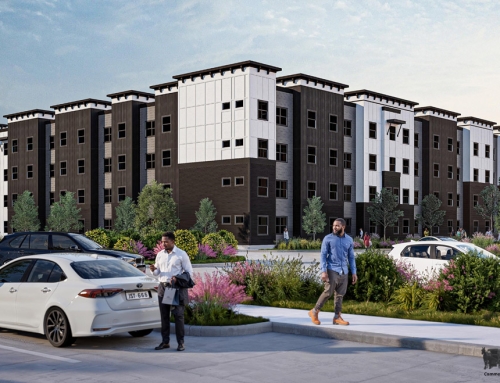After years of expansion, COVID-19 has dealt hotels an unprecedented blow. Travel restrictions and the cancellation of large events left the hospitality sector scrambling in the early days of the pandemic. Now, a few months in, investors are asking: what does hotel financing look like in a COVID-19 economy?
The answer to that question is complex. While the Fed has cut interest rates, resulting in some of the lowest mortgage rates in history, it can be hard to predict what and when a hotel investment today will return thanks to the coronavirus pandemic.
Indicators, however, can be found in the actions of current hotel borrowers and lenders. In this article, we’ll address how these investors are financing hotels</a and what to look for in the next year.

What Borrowers are Doing to Financially Weather the Pandemic
As occupancy plummeted, borrowers began asking for deferrals of both principal and interest payments. Since they still needed to cover fixed costs like insurance and taxes despite the drop in revenue, this was a logical request.
Lenders can choose to approve or deny these requests, of course. However, to deny them is to risk eventual default if occupancy doesn’t increase. For many lenders, a better option has been to work with borrowers. They can restrict distributions, dividends, and intercompany debt payments to the borrower’s shareholders, sponsors, and related entities. They can even ask sponsors to inject equity.
For borrowers interested in seeking deferrals, it’s important to review the terms of the credit agreement. Law firm Blake, Cassels & Graydon recommends checking for:
- continuous operating covenants
- financial covenant requirements, including regular testing and reporting of compliance with such financial covenants
- requirements to make regular payments into a furniture, fixtures and equipment (FF&E) reserve fund, or to make property improvement plan (PIP) renovations as required by a hotel brand
Knowing your contract means knowing your options.
Hotel owners and franchisees can also seek help from their brand management or franchise agreement. This may require consent from the lender, so borrowers should check their terms before asking. Relief can come in the form of:
- fee relief
- deferred cycle renovations
- waived required funding of FF&E reserves
- suspended brand standards/initiatives
- suspended brand standard audits
- usage of FF&E or PIP reserve funds, or management fee accruals
A borrower who goes the extra mile to explore all financial avenues will have a much easier time working with their lender.

How Lenders are Responding Amid COVID-19
Lenders have been most willing to work with proactive and transparent borrowers. Direct, professional, and communicative borrowers are valuable in the COVID-19 economy. This is especially true for those who work to preserve cash flow and demonstrate that they’re doing everything they can to make smart financial choices.
Relief doesn’t only come from lenders. Look for borrowers seeking tax deferrals and applying to business- and region-specific programs, exploring all avenues and options. After making these efforts, lenders should be more inclined to grant leniency with FF&E or PIP reserve funds. Unlocking management fee accruals may also help cover working capital for short-term liquidity.
Lenders should take all information into account when making decisions about how to work with borrowers. While reduced or deferred payments and debt restructuring are far from ideal, drawing too hard a line during times of financial difficulty for borrowers and economic uncertainty overall could result in losing a valuable relationship. Borrowers who genuinely want to bounce back are great assets compared to unoccupied real estate.
Finally, in times of uncertainty, information changes often. Know where you stand with your borrowers and your responsibilities, and make the best decisions with the information you have.

Exploring All Hotel Financing Options
Many hotels have joined government and private programs to convert rooms into temporary residences for healthcare workers, homeless residents, and others in need of housing. While helpful in many ways, these efforts are always an operational adjustment and are, of course, temporary. Hotel leaders should continue to explore other options, such as:
- Deferring SBA Loan Payments. 7(a) lenders and 504 business certified development companies can defer payments up to six consecutive months.
- Deferring microloan payments. Intermediary lenders can provide deferments up to six months as long as it doesn’t extend beyond the six-year maturity.
- SBA Economic Injury Disaster Loan. This and some state programs can provide up to $2 million in cash assistance at a 3.25% interest rate.
- Refinance. Before COVID-19, borrowers would “harvest their equity” by refinancing at a higher loan-to-value ratio and a much lower interest rate with a standard loan program to consolidate debt and gain capital. This tactic can still work today, especially with an SBA loan.
Outside of SBA loans, borrowers can seek business lines of credit, working capital loans, bridge loans, credit card merchant cash advances, retirement account loans, or second mortgages, if necessary. All of these could help stave off a worst-case scenario of chapter 11 bankruptcy.
What is the best financing or refinancing for your commercial real estate? Whether Borrowing, Investing or Owning, Get Experience in Your Corner.
When considering CRE financing or investment, it’s important to have knowledgeable advisors on your side. Experienced professionals such as those at Pioneer Realty Capital offer advisory, crowdfunding, and a network of over 790 capital partners to create creative, cost effective solutions. To find answers to your CRE investment or financing questions, reach out today.













Get Social